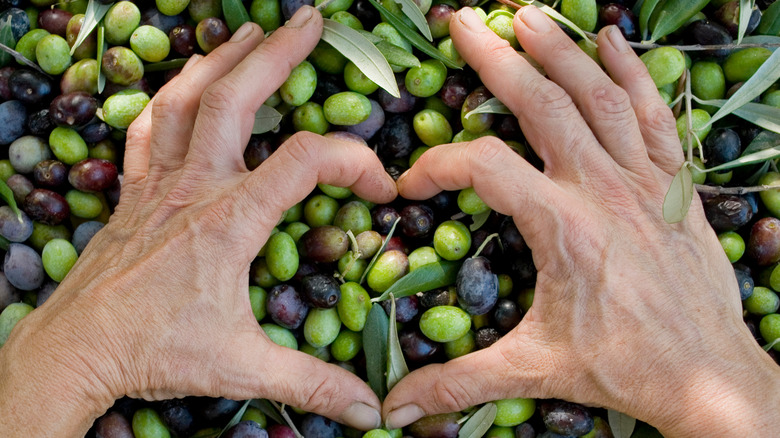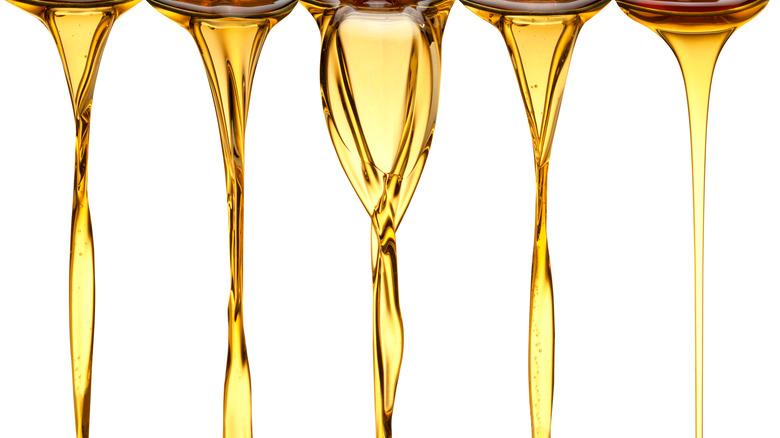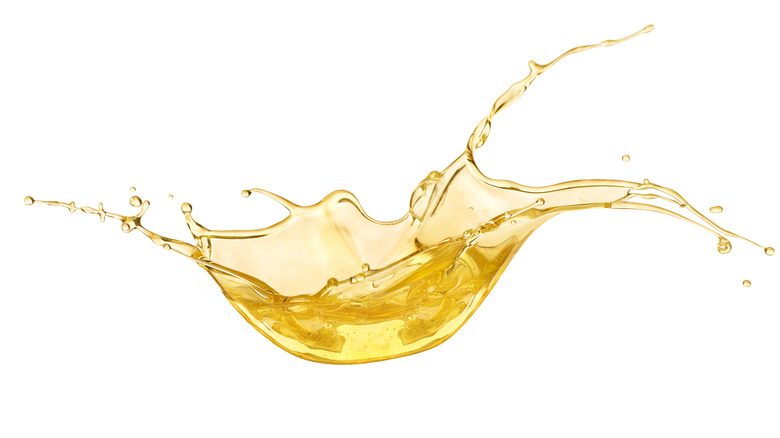Vegetable Oil Versus Olive Oil: Which One Is Better For Your Heart?
There's nothing quite like the satisfaction you feel when you're enjoying something delicious and find out it's not all that bad for you. Even better, it may be relieving to learn it might actually be beneficial to your health. Fat has its place among these tasty titans. Despite the stigma around the word "fat," it plays an essential role in a balanced diet. Since our bodies don't create fatty acids on their own, we have to find ways to put them on our plates, and plant oils are an excellent way to do that.
Olive and vegetable oils are some of the most widely used liquid fats when it comes to cooking and dressing food. When it comes to plant oils, however, not all are created equal. In fact, some can improve heart health, while others may be packed with trans fats that can lead to heart disease. In a face-off between vegetable and olive oil, which wins your heart (health)? Let's take a closer look.
A breakdown of plant oils
Vegetable and olive oils each have their own respective processes, tastes, uses, and nutritional value, according to Healthline. Olive oil is, of course, made through the process of pressing olives, while vegetable oil is typically a blend of extracted fats from one or multiple of the following: canola, corn, soy, sunflower, or safflower. Olive oil typically has a fruity, herbaceous, and slightly bitter flavor, and for that reason is used for sauteing, dipping, and dressing. Because vegetable oils tend to have a neutral taste, they are most often used for frying and baking.
While all of these distinguishing factors are important in deciding which oil to reach for, it is imperative to note that olive oil — especially extra virgin olive oil (EVOO) — is a great source of antioxidants, vitamins E and K, calcium, and potassium, per MedicalNewsToday. This is because it undergoes the least amount of processing. Vegetable oil falls a bit flat in the health department, as it maintains only trace nutrients after processing.
A closer look at the healthiest oil
In 2021, the American Heart Association released a formal statement claiming that olive and sunflower oils are the best plant-based oils for heart health. This should come as no surprise, as many scientific studies support these claims — a 2014 study published in BMC Medicine linked the Mediterranean Diet and the consumption of EVOO to a healthier heart, lower rates of cardiovascular disease, and a lower mortality rate amongst those with a high cardiovascular risk.
Vegetable oils can still have a place in your diet, but there are a few caveats. Always make sure that the oil you're using doesn't have a label that reads "hydrogenated" or "partially hydrogenated," as hydrogenated oils are high in trans fats and could negatively impact your heart health. For that same reason, Healthline suggests staying away from vegetable oils found in margarine, vegetable shortening, premade doughs, fried foods, coffee creamers, and prepackaged snacks. Whenever possible, try using the more nutritional olive oil instead, as it can save you some empty calories.



